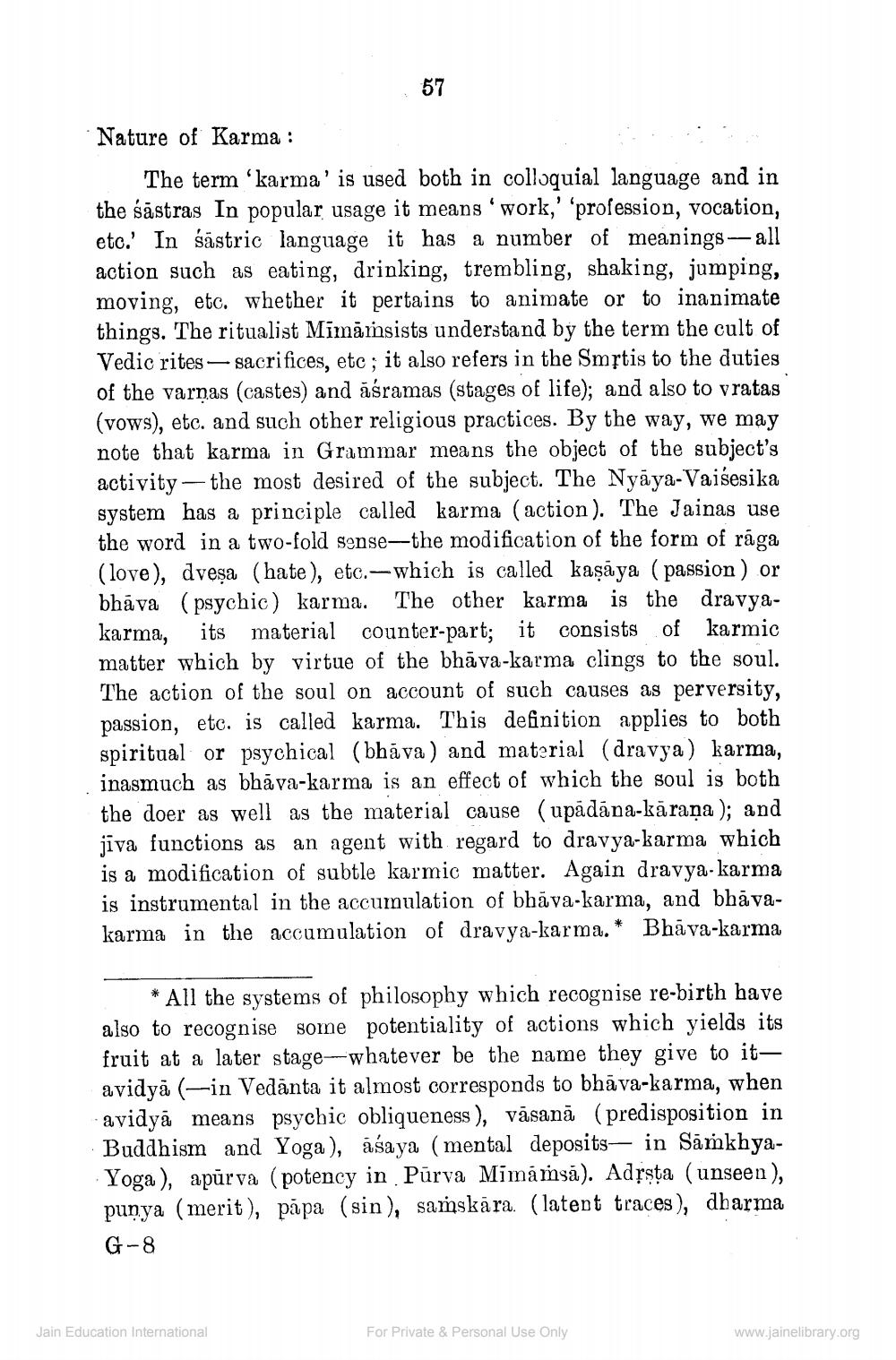________________
57
Nature of Karma :
The term 'karma' is used both in colloquial language and in the śāstras In popular usage it means 'work,' 'profession, vocation, etc. In śāstric language it has a number of meanings -- all action such as eating, drinking, trembling, shaking, jumping, moving, etc. whether it pertains to animate or to inanimate things. The ritualist Mimāmsists understand by the term the cult of Vedic rites — sacrifices, etc; it also refers in the Smptis to the duties of the varnas (castes) and äśramas (stages of life); and also to v ratas (vows), etc. and such other religious practices. By the way, we may note that karma in Grammar means the object of the subject's activity — the most desired of the subject. The Nyāya-Vaisesika system has a principle called karma (action). The Jainas use the word in a two-fold sense—the modification of the form of rāga (love), dveşa (hate), etc.—which is called kaşāya (passion) or bhava (psychic) karma. The other karma is the dravyakarma, its material counter-part; it consists of karmic matter which by virtue of the bhāva-karma clings to the soul. The action of the soul on account of such causes as perversity, passion, etc. is called karma. This definition applies to both spiritual or psychical (bhāva ) and material (dravya) karma, inasmuch as bhāva-karma is an effect of which the soul is both the doer as well as the material cause (upādāna-kāraņa); and jiva functions as an agent with regard to dravya-karma which is a modification of subtle karmic matter. Again dravya-karma is instrumental in the accumulation of bhāva-karma, and bhāvakarma in the accumulation of dravya-karma.* Bhāva-karma
* All the systems of philosophy which recognise re-birth have also to recognise some potentiality of actions which yields its fruit at a later stage-whatever be the name they give to itavidyā (-in Vedānta it almost corresponds to bhāva-karma, when avidyā means psychic obliqueness), vāsanā (predisposition in Buddhism and Yoga), aśaya (mental deposits-- in SamkhyaYoga), apūrva (potency in Pūrva Mimámsā). Adřsta (unseen), punya (merit), pāpa (sin), samskāra. (latent traces), dharma G -8
Jain Education International
For Private & Personal Use Only
www.jainelibrary.org




